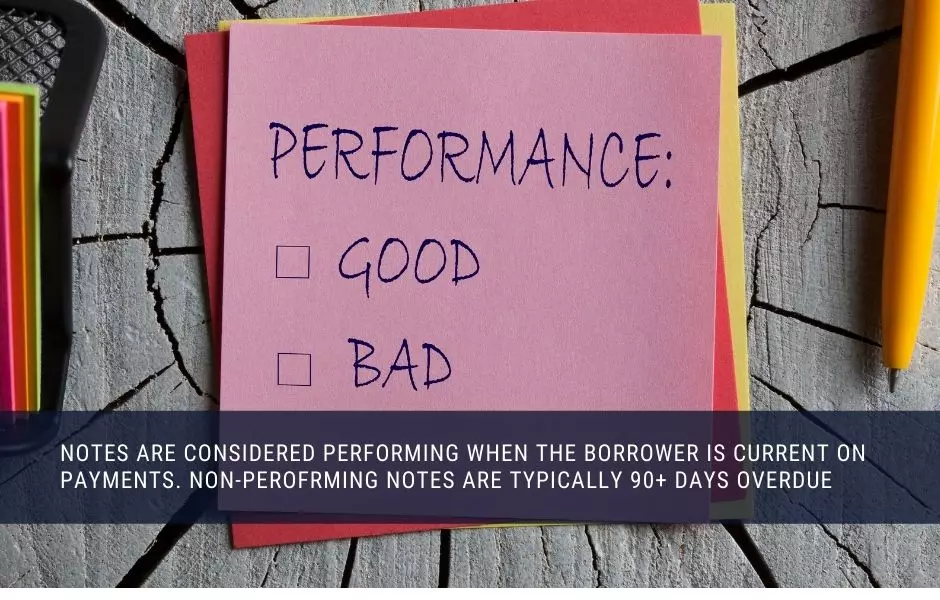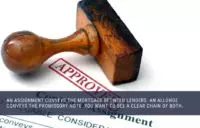Are you familiar with real estate notes? These financial instruments are more common than you may think. In fact, you probably use various types of notes every day, such as car financing, student loans, and personal loans. In this article, we will explore everything you need to know about real estate notes.
What Are Real Estate Notes?
Real estate notes are IOUs that use a piece of real estate as collateral for a loan. They consist of two parts: a promissory note and a lien. The promissory note outlines the terms of the loan, while the lien acts as a separate instrument recorded against the title to the real estate.
 A note and a mortgage are two separate parts of one transaction
A note and a mortgage are two separate parts of one transaction
The Promissory Note
Every promissory note is unique, as the terms are negotiated between the borrower and lender at the time of origination. However, a promissory note should include essential details such as the total loan amount, monthly payment, origination date, maturity date, loan term, interest rates, and addresses of both parties.
The promissory note may also contain waiver clauses and provisions for late payments and balloon payments. It is held by the lender and returned to the borrower when the loan is fully repaid. Real estate notes can be freely bought and sold on the open market.
Performing vs Non-Performing Real Estate Notes
When investing in real estate notes, it's crucial to understand the difference between performing and non-performing notes. Performing notes are those where all payments are current and up to date. Investors are attracted to performing notes because they generate regular monthly income, especially when interest rates are low.
Non-performing notes, on the other hand, are loans where the borrower has stopped making payments. These notes can be purchased at a discount by specialist investors, who then attempt to renegotiate the terms with the borrower or take control of the real estate through various means.
 Performing notes generate monthly income
Performing notes generate monthly income
Mortgages and Deeds of Trust
The lien in a real estate note is typically a mortgage or deed of trust, recorded against the title to the property. This gives the lender the right to take ownership if the borrower defaults on the terms of the promissory note.
When buying a real estate note, it's essential to review the mortgage or deed of trust for details such as due on sale clauses, lender recourse provisions, insurance requirements, foreclosure procedures, and accurate legal descriptions.
1st Position vs 2nd Position Liens
Understanding lien positions is crucial when investing in real estate notes. A first position lien takes priority in foreclosure proceedings, while a second position lien is settled only after the first position has been paid. It's important to note that other types of liens, such as property tax liens, can also affect the priority of foreclosure.
Investors should weigh the risks associated with second position mortgages, as they typically carry higher interest rates. If you're looking for safe, passive investments with monthly income, it's advisable to focus on first position liens.
What Are Real Estate Notes Used For?
Real estate notes are used for various purposes in the real estate industry. Banks and credit unions create notes when providing mortgages, while private lenders may originate real estate notes for investors. Seller financing is another common use of real estate notes. These notes can be bought and sold on the secondary market.
Buying and Selling Real Estate Notes
Real estate notes can be attractive investments, offering high rates of interest and potential profits. Performing notes provide regular monthly income, while non-performing notes can be acquired at a discount for potential restructuring or foreclosure opportunities.
In the United States, anyone can buy, sell, or own real estate notes. They are freely traded between investors on the open market. You can find real estate notes for sale through online exchanges, note brokers, crowdfunding websites, private lending programs, and note investment funds.
 Anyone can buy or sell real estate notes
Anyone can buy or sell real estate notes
When buying or selling real estate notes, important paperwork such as assignments and endorsements are required. An assignment records the transfer of the mortgage deed or deed of trust, while an endorsement records the transfer of the promissory note itself.
Buying notes directly from banks can be challenging, as it requires building relationships and having significant resources. Online platforms and tools can help identify lenders selling real estate notes. Due diligence is crucial when purchasing notes, as it ensures a clear chain of ownership and mitigates risks.
Conclusion
Real estate notes offer a unique investment opportunity in the world of finance. Whether you're interested in performing or non-performing notes, understanding the intricacies of these financial instruments is crucial. From lien positions to mortgage assignments, proper research and due diligence are essential when venturing into the real estate note market.
 Investors can buy and sell real estate notes on online exchanges
Investors can buy and sell real estate notes on online exchanges
So, explore this fascinating investment avenue and consider adding real estate notes to your portfolio. Whether you're looking for monthly income or potential profits, real estate notes can provide a valuable addition to your investment strategy.











